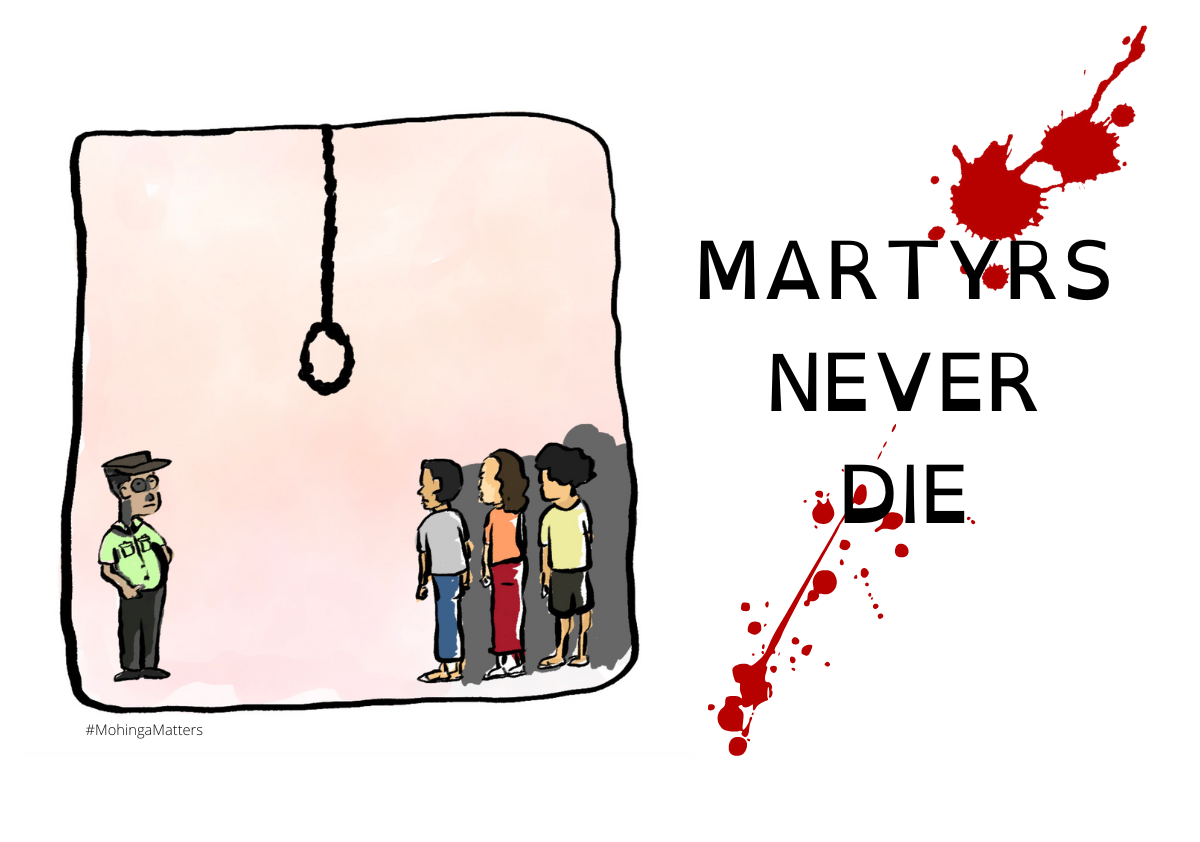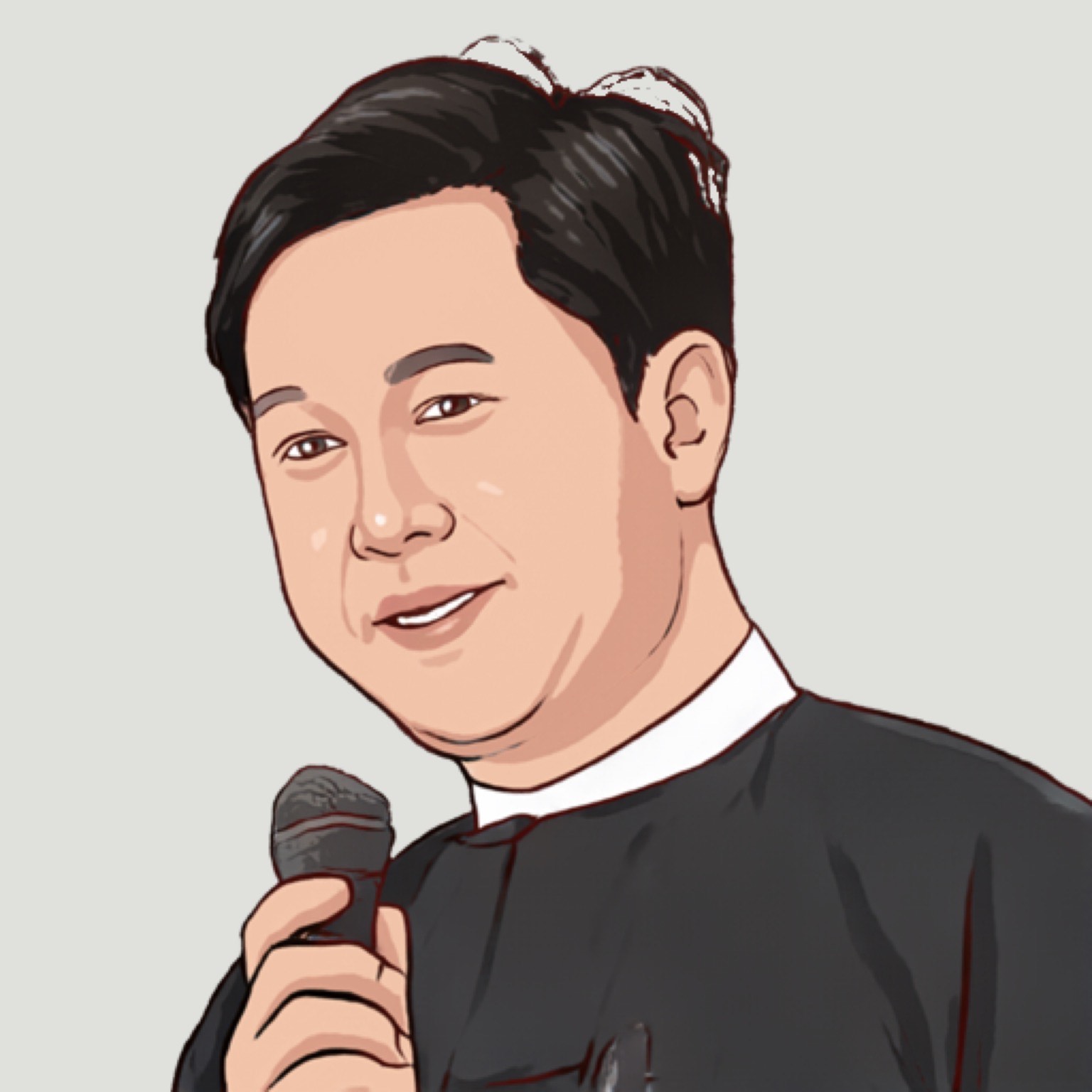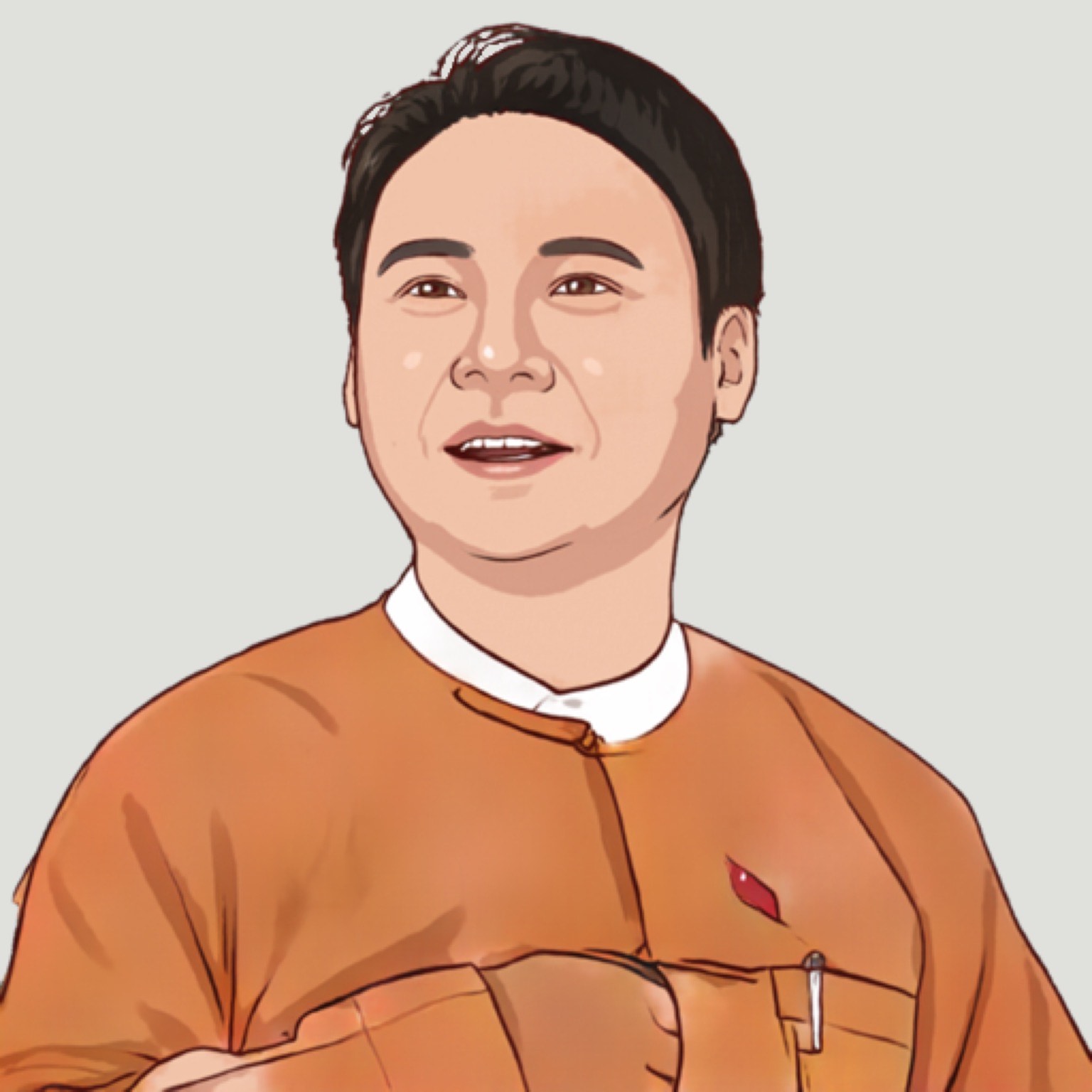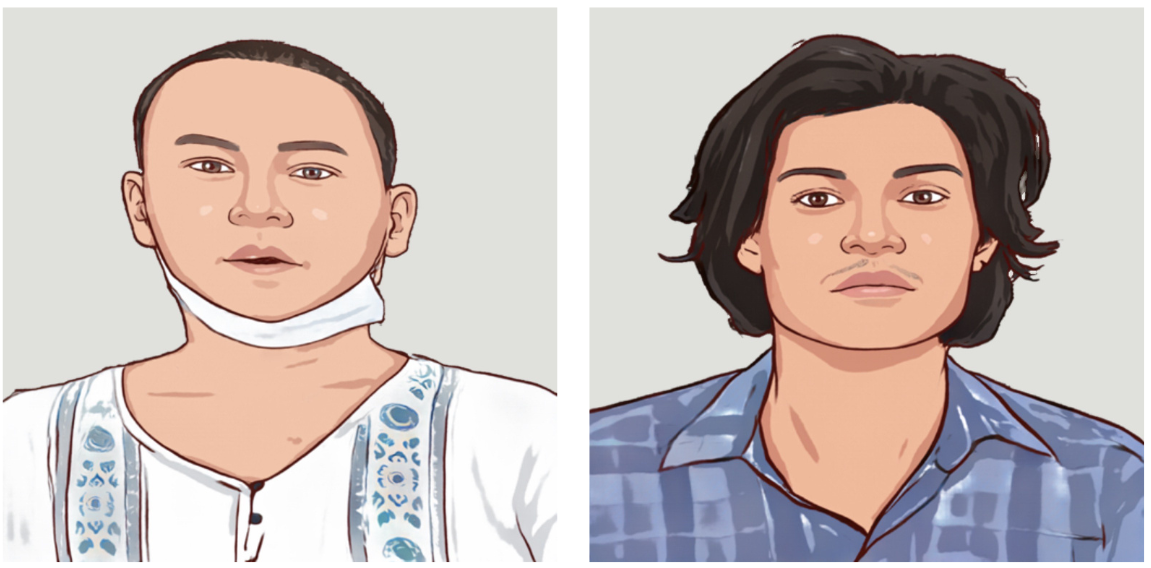
Ko Jimmy, author, and songwriter, 88 Gen leader
Since its early days, the military coup has shown who our real friends are and who fake, taking masks off people who we once think from our side. As the coup unfolded in 2021, we witnessed some student leaders from the 8888 Uprising switched sides and aided the military, but a few remained supporting the new generation of freedom fighters with any way they could, and Ko Jimmy was one of them.

Born in 1969, Ko Jimmy was merely a 20-year-old student at Rangoon Arts and Sciences University (Now Yangon University) studying Physics. When the nationwide uprising was staged, Ko Jimmy took part as a leader of students’ union, organizing and mobilizing anti-regime protests. Rose to fame, he was known as one of the key political organizers of the 88 Generation.
Threatened by brave and educated younglings, regimes, then or now, would always find reasons to lock up political dissidents. Ko Jimmy, among many others, was put into jail for the first time in 1989, and served his time for 16 years, finally being freed in 2005. When the Saffron Revolution took place, Ko Jimmy, once again, took part and led the protests, which costed him a second jailtime from 2007 to 2012.
As an ordinary young man, he dreamed of having a family and pursued it upon the release from first time of imprisonment. He got married to fellow political activist Ma Nilar Thein and had a daughter. Once, Ko Jimmy said in an interview that he only wanted to become either an economist or an artist. With passion for writing, his first literary project was a translation of Andrew Matthew’s “Making Friends”. While serving prison-term time for the second time, he penned the original work “the Moon in Inle Lake” and published in 2012 upon his release. He also translated Dan Brown’s Angels and Demons and the Da Vinci Code. In addition to this, he was also a columnist for Radio Free Asia (RFA)’s Burmese Service for four years. His writing was not limited to novels and translations. He was also a musician who played keyboard and Burmese xylophone as well as a songwriter who had written songs as many as they could be produced in two studio albums. Yet, it seemed Ko Jimmy continued to be tangled up in Myanmar’s anti-regime struggles throughout his life.
Myanmar was on its so-called democratization process when he was released from prison for the second time until the military staged a coup on the morning of February 1, 2021. Once again, Ko Jimmy, shouldering the duty of a citizen and a senior political leader, defied the new regime. Knowing that the 88 Generation leaders were supporting both spiritually and practically, the new regime issued arrest warrant on Ko Jimmy, another fellow 88 Gen Ko Min Ko Naing and a few others, as early as February 13, 2021 “for stirring up tranquility in the society”. In October 2021, the military regime announced from its propaganda machine that it had arrested Ko Jimmy with weapons, accusing that he had led and coordinated guerrilla attacks with underground anti-regime forces. In January 2022, he received death sentence from the junta-court, but Myanmar had not executed death penalty for decades, so many, including his family, assumed the court decision as a long-term jail time.
Zayar Thaw, pioneer hip hop artist, youth leader and parliamentarian

If you grew up in late 1990s and early 2000s in Myanmar, your first introduction to hip hop music would be the “Acid”, four-rapper band bringing this new type of music called “rapping” which sounded so much like speaking fast in a quarrel. Going by the stage name Nitric Acid, Zayar Thaw had always been politically cautious. As a seven-year-old, he witnessed the military regime’s crackdown of protesters during the 8888 Uprising from the balcony seat of his parents’ apartment on Bo Aung Kyaw Street in downtown Yangon. Once again in 1996, students ‘protests were staged again, and Zayar Thaw wanted to participate in the movement in his own way. At an impromptu speech competition at school, the 15-year-old high school student gave a speech about the role of military which was to protect its citizens, not to attack them. Surely, the authorities got attention, and strictly warned him not to give certain speeches in the future.
As he grew from boyhood to a young man, Zayar Thaw concealed his political consciousness, and lived as a normal 20-something until the Saffron Revolution in 2007. He saw the 88 Generation leaders, a wider public inclusive of Buddhist monks, protesting the sudden price hike of fuels and diesels in the country. Always been politically conscious, he took part in the revolution by co-founding youth organization called the “Generation Wave” and led underground movements such as circulating anti-regime films and writings, conducting widespread bumper sticker campaign where stickers with text which read “Change New Government” and pasted them on cars. Tale as old as time for Myanmar’s youth activists, he was detained and jailed by the military in 2008 for five years.
In 2011, Zayar Thaw received the pardon from President U Thein Sein, a military-general-turned-civilian, and released from Kaw Thaung Prison. Less than one year upon his release, he represented the National League for Democracy (NLD) and contested in 2012 Parliamentary By-Election under the quasi-democratic 2008 Constitution. Zayar Thaw secured the seat in lower house, representing Pobba Thiri Township in Naypyidaw. Once again in 2015 General Election, he continued to secure a seat in the lower house, representing Zabbu Thiri Township in Naypyidaw. During his time as a parliamentarian and an NLD member, he worked tirelessly for his constituents, and closely with the NLD leader Daw Aung San Suu Kyi. Turning 40 in 2021, Zayar Thaw became a part of an older generation when Min Aung Hlaing-led military staged a coup defat in February 1. In the early days of the coup, he supported the anti-coup movement, and gave speeches, shouting anti-regime chants in front of the sea of people in downtown Yangon. Most prominent politicians, including himself, dispersed when the regime started violent crackdown, working secretly with underground guerrilla forces. Zayar Thaw’s name hit the headlines on November 18, 2021 when the regime-controlled newspaper announced that it had arrested him in Yangon. Again, in February 2022, junta-media reported that the military court sentenced him with death penalty.
Ko Hla Myo Aung & Ko Aung Thura Zaw

When one’s country is stolen, one must act to take it back to the hands of the people, taking part in every possible way. It’s not an option, but rather a duty, revolting against the thefts who stole the future of a nation. Ko Hla Myo Aung and Ko Aung Thura Zaw took the duty as responsible citizens, taking part in their roles in the anti-regime movement. Nobody would know about these two ordinary men until the regime arrested them, accused them of committing homicide, and announced their death sentences together with the two resistance leaders.
Planned Murder inside the Insein Prison
Ko Jimmy, Zayar Thaw, Ko Hla Myo Aung, and Ko Aung Thura Zaw are not the only ones who received death penalty. According to Assistance Association for Political Prisoners (AAPP), a total of 118 people has been sentenced to death by junta court this year. In June 2022, the military spokesperson said in a press conference that the regime would not be bluffing but implement the execution of death sentences. A few days later, rumor spread on Myanmar social media that the two resistance leaders, together with Ko Hla Myo Aung and Ko Aung Thura Zaw would be executed at 4am the next day. Netizens showed concerned, international community condemned and urged the military regime to not proceed with the execution. The next day, no news was released from the Insein prison, and the news of the Four were buried among other resistance news.
A month later on Friday July 22, news about the Four resurfaced again. It sounded like good news since they were allowed to meet with their families. Inside the Insein Prison compound, the families greeted their loved ones via video call for 20 minutes. All of them thought they would meet again. The detainees asked their families to send toiletries, books, dictionaries, personal items, etc., and the family were willing to deliver requested items the next working day. Nobody, neither detainees nor their families, knew it would be their last encounter.
The weekend passed, and the family prepared to deliver items that their loved one requested on Monday. In state-run newspapers of that day, the regime reported that the Four had been executed over the weekend, with no details were further released, and no dead body returned to the families. The prison wardens refused to provide the exact time and date of the execution.
Throughout the people’s fight against the fascist military, Ko Jimmy never betrayed truth, the people, and justice. Similarly, Zayar Thaw took the steering wheel when he was needed. In one of the interviews, he said, “I want to say that I support the Generation Z. We are always behind you, together with you. If necessary, we will stand in front of you to protect”. Sticking to his own words, Zayar Thaw gave his life for the revolution and for the people. The sacrifice that Ko Hla Myo Aung and Ko Aung Thura Zaw made will also never go in vain.
We are saddened by the loss, angered by the regime’s barbaric murder in detention, but we are grateful for the lives they sacrificed for us, and proud to call them our leaders and comrades.

